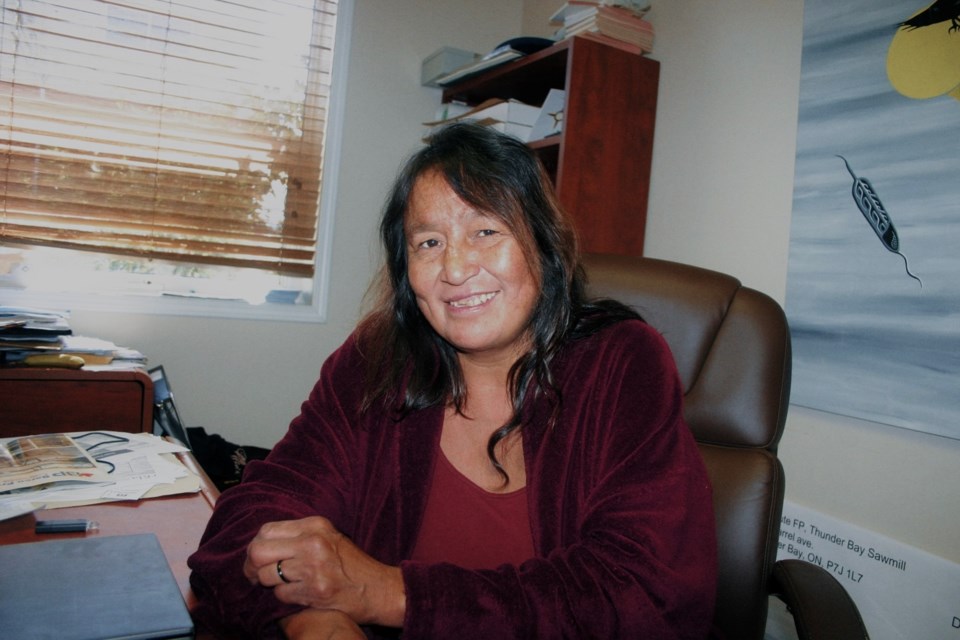THUNDER BAY – Homelessness is a significant issue in Thunder Bay, although society often overlooks personal stories behind the statistics.
To better understand homelessness in Thunder Bay, TBnewswatch spoke with a Shelter House client along with the executive director – to gain deeper insight into the realities that homeless people face on a daily basis.
Rachel Wapoose, a Shelter House client, shared her deeply personal story. After experiencing the loss of her common-law partner eight years ago, followed by the loss of her brother, Wapoose found herself in a place filled with profound grief.
Wapoose’s journey involved not only the loss of her loved ones, but also significant personal sacrifices.
"It was a choice that I made, just to give up everything," she said.
After experiencing all that loss, she felt the need to leave her home behind. Her decision to let go wasn’t just about the physical space but extended to giving up her responsibilities as a foster parent.
Survival is a constant struggle for those experiencing homelessness.
“The challenge was keeping clean, obtaining money – I had to panhandle – and I hardly ate. I turned to alcoholism.”
This situation also led to her experiencing discrimination.
“People should realize that even though the homeless community might drink, they are still people. Everybody has a story," Wapoose said.
Empathy and understanding are crucial when considering the struggles faced by those experiencing homelessness, she said.
Wapoose highlighted the importance of recognizing that everyone has their own life story and reasons for being on the streets.
"Understand that we are all human, and we all have lives and reasons for being out here."
Without this understanding, she warned, people might need to experience such hardships themselves to fully comprehend the challenges.
Brendan Carlin, the executive director at Shelter House, emphasized the shelter’s commitment to providing essential services to those in need.
"We provide a roof and meals to those who are homeless in Thunder Bay. We also run a managed alcohol program for those struggling with alcohol addiction, aiming to improve their quality of life and health," Carlin said.
He also addressed the organization's approach to inclusivity.
"At Shelter House, we start from a place of respect for everyone. Nobody who comes in our doors is treated differently than any other.
“That goes for our staff as well as clients. Threats, intimidation, and discrimination are not tolerated. Most of our clients are Indigenous, and our building is filled with art from Indigenous artists. Many have experienced generational trauma, which informs how we treat and serve them."
When it comes to long-term goals, Carlin highlighted the individualized approach that the Shelter House takes.
“Our long-term goals vary from client to client. In general, we want to provide a safe space for anyone that needs it, no matter their situation in life. We try to meet clients where they are and help them get to the next step, whether that’s housing, health support, or access to other services.'”
Systemic discrimination also plays an important role in the cycle of homelessness and hindering access to important resources, he said.
"Being part of a marginalized community can lead to issues like economic inequality, housing discrimination, and problems in the justice system. It’s not necessarily that individuals who work in these institutions are 'racist,' but the way these systems were set up gives advantage to the majority and leaves the rest behind,” Carlin said.
While addressing these challenges, he advocated for continued education and awareness throughout the community.
“It needs to start in school, recognizing that some of us are privileged in how we are treated, while others do not have the same advantages."
Community support plays a vital role in addressing homelessness and related issues.
"Speak out when you hear negative comments about homeless or marginalized people," Carlin urged.
"Correct misconceptions on social media and support organizations working to make a difference. Visibility and advocacy can help address these critical issues."
Both Wapoose and Carlin emphasized the importance of compassion and understanding.
"We are all people, and we are all in this together," Carlin said.
"Many of the people who stay in shelters have fallen through the cracks in some way. Sometimes it’s due to trauma, mental health issues, or other factors. They are not asking for much – just dignity and a roof over their heads."
